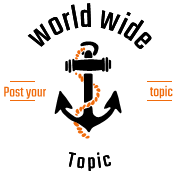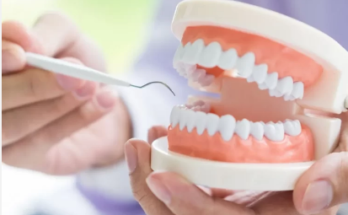Bodybuilding is no longer a male-dominated sport. Increasing numbers of women are embracing resistance training, strength competitions, and bodybuilding for fitness, health, and empowerment. Alongside this rise, the use of nutritional supplements has grown rapidly among sportswomen. From protein powders and creatine to pre-workouts and hormone boosters, women are now major consumers of the same products traditionally marketed to men.
But do these supplements work the same way in women? Are the benefits and risks different due to female physiology? Understanding the effects of bodybuilding supplements on women’s health is vital for safe and effective use.
Why Women Use Supplements in Bodybuilding
For women athletes, the motivations for supplement use often overlap with men’s:
-
Muscle growth and strength
-
Improved endurance and recovery
-
Fat loss and body composition goals
-
Enhanced performance in competitions
However, social and biological factors add unique layers: women may aim for a leaner, more toned physique without excessive bulk, and hormonal fluctuations (menstrual cycles, pregnancy, menopause) can influence how the body responds to supplementation.
Common Supplements in Women’s Bodybuilding
1. Protein Powders
-
Purpose: Support muscle repair and growth.
-
Effect in women: Studies confirm protein supplementation after resistance training increases lean muscle mass in women, especially when combined with a calorie-controlled diet.
-
Considerations: Women generally require less total protein than men due to lower muscle mass, but under-consumption is common, making protein powders effective aids.
2. Creatine
-
Purpose: Improves short bursts of strength, power, and muscle recovery.
-
Effect in women: Research shows women respond well to creatine, though they often experience less water retention than men. This makes it appealing for strength gains without a “bloated” look.
-
Note: May improve bone health in women, especially post-menopause.
3. Branched-Chain Amino Acids (BCAAs)
-
Purpose: Reduce muscle soreness and prevent muscle breakdown.
-
Effect in women: Can be especially useful for women with lower protein diets. However, when overall protein intake is sufficient, BCAAs may not add much benefit.
4. Pre-Workout Formulas
-
Purpose: Boost energy, focus, and endurance.
-
Effect in women: Caffeine and beta-alanine can be effective, but women may be more sensitive to stimulants, increasing the risk of jitteriness, sleep disturbances, or menstrual cycle disruptions.
5. Fat Burners and Thermogenics
-
Purpose: Support weight management and fat loss.
-
Effect in women: Can raise metabolism modestly, but risks (heart strain, anxiety, hormonal impact) often outweigh benefits.
6. Hormone-Influencing Supplements (e.g., Testosterone Boosters, DHEA, SARMs)
-
Purpose: Enhance muscle growth by altering hormone balance.
-
Effect in women: Can cause serious side effects, including menstrual irregularities, acne, hair loss, voice deepening, and long-term endocrine disruption. These are generally unsafe for women outside of medical supervision.
Do Women Respond Differently to Supplements?
Physiological Differences
-
Hormones: Estrogen and progesterone affect muscle growth, fat metabolism, and water retention. For instance, estrogen is protective for muscle recovery but can interact with supplements like creatine differently than in men.
-
Muscle Mass: Women typically have lower baseline muscle mass, meaning relative gains from protein or creatine may appear smaller but are still significant.
-
Metabolism: Women oxidize fat more efficiently during exercise, while men rely more on glycogen. Supplements designed for fat burning may therefore have a different impact.
Psychological & Social Dimensions
-
Marketing often frames supplements for women around weight loss, toning, and beauty, while for men it’s about power and size. This difference influences supplement choice and patterns of use.
-
Women may underuse safe supplements (like creatine) due to misconceptions about “bulking up,” while being more likely to experiment with less effective fat burners.
Potential Health Risks for Women
-
Kidney & Liver Stress
-
Excessive protein or unsafe supplement combinations can put stress on kidneys and liver.
-
-
Hormonal Imbalances
-
Supplements that mimic or influence hormones can disrupt menstrual cycles and fertility.
-
-
Cardiovascular Strain
-
High-stimulant pre-workouts and fat burners may raise blood pressure and heart rate.
-
-
Nutrient Interactions
-
Supplements may interfere with iron, calcium, or folate—nutrients particularly important for women’s health.
-
Evidence-Based Perspective
A 2016 review in the Journal of the International Society of Sports Nutrition highlighted that women benefit significantly from protein and creatine supplementation, showing increased muscle strength, lean mass, and recovery when combined with resistance training. However, the paper also stressed the need for more gender-specific research, especially concerning hormonal and long-term health effects (Candow et al., 2016).
Practical Guidelines for Women Using Supplements
-
Prioritize Nutrition First: Supplements should fill gaps, not replace a balanced diet.
-
Stick to Proven Basics: Protein, creatine, and certain pre-workouts have the strongest evidence of safety and effectiveness.
-
Avoid Hormonal Manipulators: Testosterone boosters, DHEA, and SARMs can be dangerous for women.
-
Monitor Dosages Carefully: Women may require smaller doses than men, especially for caffeine and stimulants.
-
Consult Professionals: A physician or sports nutritionist should guide supplement plans, particularly for athletes with medical conditions or pregnancy considerations.
The Bigger Picture: Sexual Wellness and Body Confidence
Beyond performance, supplement use among women often ties into body image and confidence. Safe supplementation, combined with structured training and recovery, can empower women to feel stronger, healthier, and more in control of their fitness journey.
But over-reliance or unsafe use may lead to anxiety, health risks, or disappointment. Education and access to expert guidance are key to balancing ambition with well-being.
Where to Find Trusted Specialists
If you are considering bodybuilding supplements or need professional advice tailored to women’s physiology, consult trusted sports doctors and nutrition experts. Smart Platforms like Tabeebo connect athletes and patients with qualified specialists—click here to explore safe and effective guidance for your health journey.
Conclusion
Supplements can play a valuable role in women’s bodybuilding, but the effects aren’t always the same as in men. Biological differences in hormones, metabolism, and muscle mass shape how women respond, making it important to choose supplements wisely.
When used responsibly, protein powders, creatine, and evidence-based pre-workouts can support women in building strength, recovering faster, and achieving performance goals. On the other hand, risky or hormone-based supplements pose significant dangers.
The ultimate goal should be more than just physical gains: it’s about empowering women to pursue health, strength, and confidence safely. With the right knowledge and professional support, supplements can be tools—not shortcuts—in the journey of athletic and personal growth.



